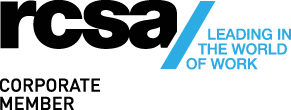Understanding Client Needs
A holistic approach begins with a thorough understanding of our clients. Every business operates within a unique context, facing its own set of challenges and opportunities. To provide the best support, we need to grasp not only their immediate HR needs but also their broader strategic objectives and industry dynamics. By taking the time to listen and learn, we ensure our solutions are tailored to meet each client’s specific needs. This deep understanding allows us to offer advice and strategies that are both relevant and effective, addressing immediate concerns while supporting long-term goals.
Delivering Tailored Solutions
A one-size-fits-all approach rarely works in HR. Each client requires solutions customised to their situation. This means developing strategies that align with their goals; whether it's attracting top talent, implementing effective HR practices, or providing ongoing support.
Tailoring our solutions ensures we address the unique challenges our clients face and deliver outcomes directly relevant to their needs. This personalised approach not only improves the effectiveness of our solutions but also strengthens our clients' overall HR capabilities.
Embracing Continuous Improvement
The HR landscape is always evolving, and so are the needs of our clients. To stay ahead, it’s crucial to embrace continuous improvement and innovation. This involves staying informed about the latest trends and best practices, investing in new technologies, and regularly reviewing and refining our services.
Actively seeking feedback from clients is a key part of this process. By engaging with them to understand their experiences and gather insights, we can make informed adjustments and enhancements to our approach. This commitment to ongoing improvement ensures our solutions remain relevant and effective over time.
The Broader Impact of a Holistic Approach
A holistic approach to HR solutions is about more than providing effective services; it’s about fostering strong, supportive relationships with our clients. By understanding their needs comprehensively and delivering tailored, adaptable solutions, we help our clients navigate their challenges and achieve their goals.
Ultimately, a holistic approach ensures that our support is not only relevant and effective but also deeply integrated into our clients' broader business strategies. This alignment is crucial for driving long-term success and helping our clients thrive in a dynamic business environment.
Conclusion
At WorkTrybe, we understand that enhancing client experience is not just about promoting our strategies but about committing to a holistic approach that truly meets our clients' needs. By focusing on understanding their unique requirements, delivering customised solutions, and embracing continuous improvement, we ensure our clients receive the best possible support.
Through this approach, we aim to make a meaningful impact on our clients' businesses,
helping them navigate their HR challenges and achieve their strategic goals.












